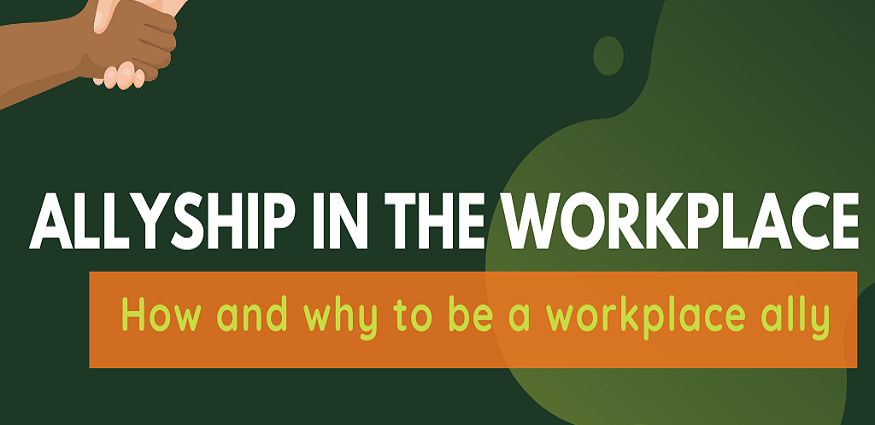Allyship has become an increasingly discussed topic in recent years as companies strive to create more diverse, equitable, and inclusive workplaces. But what exactly is allyship, and how can it be fostered effectively? This article will provide insights into navigating allyship in the workplace.
What is Allyship?
Allyship refers to the active, consistent practice of using one’s privilege and power to support and advocate for individuals or groups with less systemic power and privilege. It goes beyond passive support to taking action to advance equity and inclusion.
True allyship involves building relationships based on trust, consistency, and accountability with marginalized individuals and groups. It requires a willingness to educate oneself on the marginalization that others face and work in solidarity with them to dismantle oppressive systems, even when it involves some personal discomfort or sacrifice.
Why is Allyship Important in Today’s Workplaces?
Research shows that diverse and inclusive workplaces are more innovative, productive, and profitable. However, fostering diversity alone is not sufficient. Real inclusion requires a workplace culture where employees feel valued, respected, and able to participate fully. This is where allyship comes in.
Allyship creates psychological safety that allows all employees to bring their authentic selves to work. It provides a support system for underrepresented groups to thrive. Allies use their privilege and positions of power to advance equity by advocating for institutional policies and cultural changes.
Ultimately, allyship enables workplaces to progress from check-the-box diversity metrics toward real belonging, justice, and empowerment for all.
6 Ways to Practice Better Workplace Allyship
Here are six researched-backed strategies any employee can adopt to become a better ally at work:
1. Listen and Learn
The first step is getting educated on the barriers and marginalization colleagues from underrepresented groups face. Read books and articles, listen to podcasts, and take training courses. Follow thought leaders from diverse communities on social media. Seek opportunities for exposure and relationship building. Approach learning with humility.
2. Check Assumptions and Biases
We all have unconscious biases. Reflect critically on assumptions you might hold about different groups. Notice when biases creep into your thinking and language. Call yourself in instead of waiting to be called out. Unchecked biases result in microaggressions that make underrepresented groups feel unwelcome.
3. Signal Your Support Visibly
Display allyship symbols like badges or stickers. Use your email signature, social media bios, and Slack handle to indicate pronouns or advocate for DEI issues. Speak up in meetings when insensitive language or inappropriate behavior occurs. Your visibility encourages others.
4. Amplify Marginalized Voices
When an underrepresented colleague makes an important point, repeat and credit it publicly. Similarly, share their work achievements. If you notice them being repeatedly interrupted or spoken over, redirect the focus back to them. Use your privilege to create space for their voices.
5. Leverage Your Power and Privilege
Advocate for diversity goals and inclusion training within your organization. Mentor and sponsor promising professionals from underrepresented groups. Seek assignments that build your cross-cultural leadership skills. Call out policies and practices that seem inequitable or exclusionary.
6. Be Willing to Mess Up
Well-intentioned allies still make mistakes. When you stumble, apologize sincerely, learn from it, and commit to doing better. Don’t make excuses or expect praise for basic decency. Recognize that marginalized groups shoulder a disproportionate emotional labor burden and work to ease it.
How Organizations Can Promote Allyship
While individual employees play a key role, DEI consultants are responsible for making allyship an integral part of company culture. Some best practices include:
- Providing ongoing DEI, unconscious bias, and allyship training for all employees
- Establishing mentorship and sponsorship initiatives to support the advancement of underrepresented talent
- Ensuring HR policies and procedures are equitable and offer safe reporting mechanisms against discrimination
- Holding leaders accountable for DEI metrics tied to compensation and promotion
- Regularly soliciting input from employee resource groups for marginalized communities
- Celebrating cultural events, holidays, and heritage months meaningful to minority groups
- Auditing systems and processes proactively to eliminate unintentional biases and barriers
The Path Forward
Allyship is an ongoing practice that requires commitment, courage, and imperfection. There will always be more to learn. While the work is difficult, the benefits for organizations are immense. Employees feel valued, innovation blooms, and companies become more resilient.
By walking the path of allyship, we build bridges of understanding. With care and compassion, we can create workplaces where everyone belongs. Are you ready to chart the course?
At The Norfus Firm, we partner with organizations to develop effective DEI strategies tailored to their needs. Our team can help guide your allyship journey. Learn more about our approach, or contact us today to get started.

